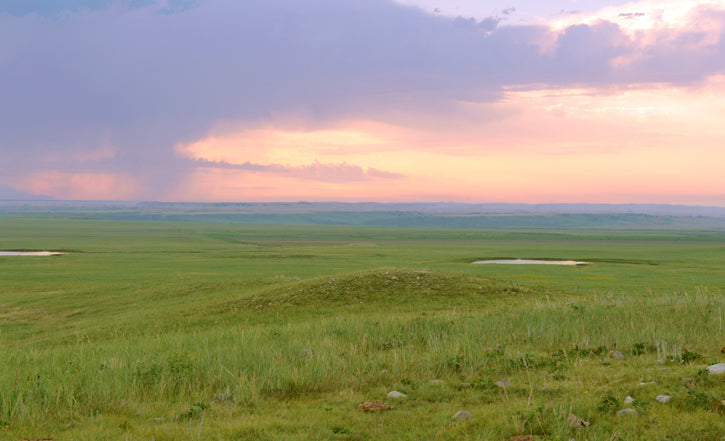There are many words that individuals, companies, farmers and ranchers use to help inform you, the consumer, on what makes them different. Inevitably, those words (natural, organic, sustainable, free range, etc) are hijacked by master marketers who put their spin on them and attach them to products that simply do not measure up. For instance, “regenerative agriculture” is used when promoting mono-cultural crops. It is a lie. There is nothing regenerative about massive acres of a mono-cultural crop.

With that said, we get the, “What the heck is regenerative agriculture?” often.
A little Google search provided the following definition:Regenerative Agriculture is a system of farming and grazing practices that among other benefits, increases biodiversity, enhances ecosystems, enriches soils organic matter and rebuilds degraded soil biodiversity, improves watersheds, and captures the draw down of carbon in the soil. These practices reverse current global warming trends of atmospheric accumulation.
And, from our in-house expert Dan O’Brien:
“Regenerative Agriculture is all about healthy soil. Industrial farming has turned much of the world’s soil into lifeless dirt. In the last decades, our soil has degenerated - from the fertile, moist, foundation of healthy food, to an exhausted, inert, chemical soaked medium where plants struggle to grow. By returning grain-free American Buffalo to the large landscape of the Great Plains we are restoring the co-evolution of grass and buffalo to regenerate the health of the soil and to keep carbon stored safely underground.” This creates a healthy ecosystem for hundreds of wildlife species and promotes clean air for us all.
Perhaps the best way to learn about regenerative agriculture is to hear directly from those that practice it. If you haven’t yet watched the short film “UNBROKEN GROUND” we highly recommend it. The O’Brien/Jones families are featured in the film (which was our favorite part... we’re a little biased) and will help shed a little more light on regenerative agriculture.

16 comments
Good stuff and have a look at Gabe Brown’s soil restoration work in North Dakota and my own jottings on food security on the Climate Coalition website- although I bow before those at the sharp end!
Oh, give me a home
Where the bison eat Brome
Where the deer and the antelope play
Where never is heard a word from the herd
In the winter give us Timothy hay. 🤔🤸♀️😊🤸♀️
I’m not a true believer regarding man made climate change but I do know factually that large corporate farms have much less bio diversity than smaller family farm operations. Continued success & Thank You Patagonia & Wild Idea Buffalo co for continuing my education.
Thanks Jill ‘fuer die Aufklaerung’. I always stumble over abreviations.
hope you are all well. Spending a week in the BWCAW next week.Can’t wait to get out
Angela
How do you find salmon from Lummi Island?
Thank you for helping us understand and embrace regenerative agriculture. I love being able to share with friends, not only the bison, but the thought processes behind your “wild ideas”. We had to cancel our trip to visit you this month but hope to be able to make plans again sometime in the near future. Y’all stay healthy!!
Angela – What The Heck! ;)
What is WTH
Outstanding video. Keep up the good work you guys.
God Bless you keep after it!
exceptional short film, reminds me of Food Inc., and should be seen by every living person on the planet. we need to step up our game against the powers that continue to drive rapid climate change. we must all embrace a better narrative which can win in the political arena and forge better policy for everyone’s future now.
Wild Idea is the very embodiment of green engineering for a sustainable future. just love you guys!
https://www.dailykos.com/stories/2019/4/21/1851974/-Joseph-Stiglitz-on-Progressive-Capitalism?utm_campaign=trending
A great video. My husband and I learned so much.
Thanks for sharing.
Inspirational. Gives me hope. Thanks so much for posting.
Very informative film about a vital subject! Kudos to the O’Brien’s and others for seeking to escape the destruction of industrialized agriculture and embracing practices that respect biodiversity and health of the Earth.
Thanks, Wild Idea Buffalo for sharing this thoughtful video about regenerative agriculture. The food production strategies depicted the video reflect many years of work on the part of many people to develop sustainable food production methods that compliment efforts to conserve soil and water, while restoring and preserving natural habitat and resources. It is not a quick fix to a food production system that will be asked to do more with less.